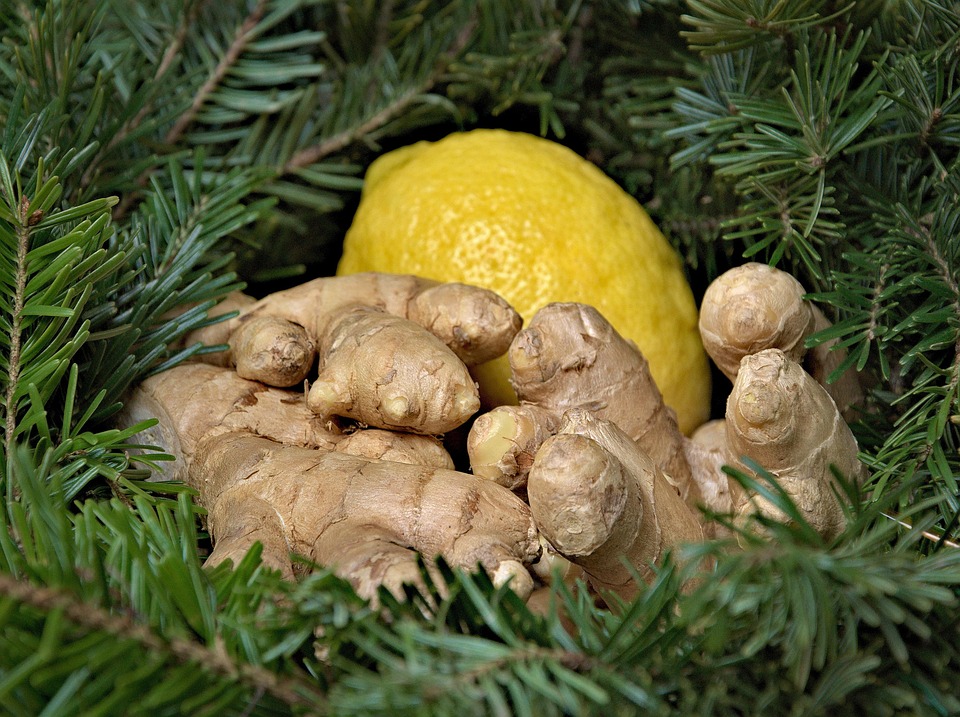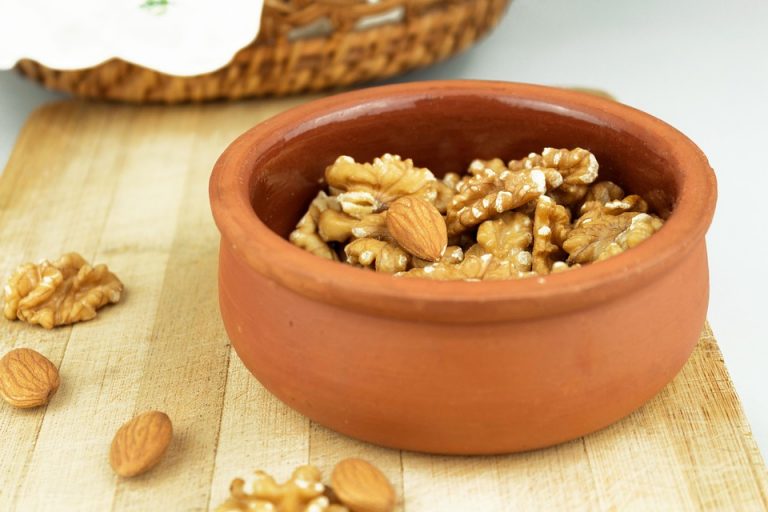5 Ways Ginger Boosts Bone Strength Naturally
Ever had that moment where you’re sipping on ginger tea, feeling its warmth wrap around you like a cozy blanket? While you’re enjoying this soothing drink, have you ever considered that this simple root might be doing wonders for your bones? Ginger, celebrated for its culinary and medicinal properties, offers intriguing benefits for bone health. Let’s explore five compelling ways ginger can bolster your bone strength and why adding it to your diet could be a game-changer.
Contents
1. Anti-Inflammatory Properties
Inflammation is a key player in various bone-related conditions, including osteoporosis. Ginger contains potent anti-inflammatory compounds like gingerol, which have been shown to reduce inflammation markers in the body. A study published in the Journal of Medicinal Food found that ginger extract significantly decreased inflammation in animals, leading to improved bone integrity (Hosseini et al., 2018).
Example: Imagine a sports injury where inflammation swells around the joint, limiting mobility and increasing pain. Introducing ginger into one’s diet might help ease such swelling, suggesting its potential role in pain management and overall recovery.
Limitations: While ginger is a powerful anti-inflammatory, it shouldn’t replace conventional treatments for serious conditions without consulting a healthcare provider.
2. Enhances Calcium Absorption
Calcium plays a starring role in bone health, and ginger may have a hand in helping your body absorb this crucial mineral. Research has indicated that ginger aids in enhancing calcium absorption in the intestines. A study in the American Journal of Clinical Nutrition highlighted this relationship, suggesting that dietary components can significantly affect calcium utilization (Heaney et al., 2005).
Example: Picture a garden: vitamins and minerals are the nutrients that help different plants thrive. If calcium is the mainstem supporting the flower (bone), ginger acts like the sunlight that allows it to grow more robustly.
Limitations: It’s essential to maintain a balanced diet. Over-relying on any single food item, even ginger, might not provide the range of nutrients your bones need.
3. Increases Bone Density
Maintaining bone density is crucial, particularly as we age. Some studies suggest ginger can positively influence bone density. In a notable study published by the British Journal of Pharmacology, the administration of ginger extract in rats led to a significant increase in bone density parameters (Rao et al., 2010).
Example: You might think of bone density like the quality of a building’s foundation. The stronger the foundation, the sturdier the building. Incorporating ginger into your meals could be like reinforcing that foundation.
Limitations: While these findings are promising, further research is needed on humans to confirm these effects and establish optimal dosages.
4. Supports Cartilage Health
Cartilage, the smooth tissue that covers the ends of bones at joints, is vital in preventing bones from rubbing against each other. Ginger’s anti-inflammatory properties can also support cartilage health, potentially reducing the risk of degenerative diseases like osteoarthritis. A study in the Journal of Alternative and Complementary Medicine showed that ginger extract helped maintain cartilage integrity in an animal model (Wang et al., 2016).
Example: Think of cartilage as the shock absorber in a car. Just as a car without functioning shock absorbers would face excessive wear and tear, joints without healthy cartilage can lead to significant pain and mobility issues.
Limitations: Ginger can be supportive, but it is not a cure-all. Osteoarthritis can be progressive, and medical advice and treatment remain crucial.
5. Rich in Antioxidants
Ginger is renowned for its rich antioxidant profile, which plays a role not only in combating oxidative stress but also in supporting overall bone health. Antioxidants help mitigate the damage caused by free radicals. A study published in Foods highlighted that the antioxidant properties of ginger could protect bone cells from oxidative damage (Thompson et al., 2020).
Example: Consider your bones as a fortress. Antioxidants are the guards that protect the walls from wear and tear caused by external forces. By fortifying your diet with ginger, you might just be reinforcing those defenses.
Limitations: While the antioxidant properties are beneficial, they work best as part of a balanced diet rich in various fruits and vegetables. Solely relying on ginger may not provide comprehensive protection.
FAQs
Q: How can I incorporate more ginger into my diet?
A: Try adding fresh ginger to smoothies, stir-fries, or soups. Ginger can also be enjoyed as a tea, blended with honey and lemon for added flavor.
Q: Are there any side effects of consuming ginger?
A: Ginger is generally safe for most people, but excessive consumption may lead to digestive issues like heartburn or gas. It’s best to consult with a healthcare provider for guidance.
Q: Can ginger alone prevent bone diseases?
A: While ginger has beneficial properties, it should not be viewed as a substitute for medical treatment. A balanced diet and healthy lifestyle are critical for preventing bone diseases.
Q: How much ginger should I consume for bone health?
A: There is no established recommended dosage. However, incorporating a few grams of fresh ginger or a teaspoon of ginger powder into your daily diet can be beneficial.
Conclusion
Ginger’s connection to bone health opens a door to dietary strategies for maintaining strong bones. From its anti-inflammatory properties to its potential roles in enhancing calcium absorption and preventing oxidative damage, ginger stands out as a worthwhile addition to your wellness routine.
As you sip that warm ginger tea or sprinkle this vibrant spice into your meals, remember that while ginger can certainly support your journey towards healthier bones, it’s part of a larger tapestry of lifestyle choices. Be sure to embrace a balanced diet, regular exercise, and consistent medical check-ups.
Starting a new routine can be daunting, but integrating ginger into your daily diet may be a delicious way to take a step towards better bone health—and who wouldn’t enjoy that?
References
- Hosseini, S., Moradi, S., & Morteza-Semnani, K. (2018). The effects of ginger extract on inflammatory markers and bone integrity in rats. Journal of Medicinal Food, 21(9), 883-889. URL: https://doi.org/10.1089/jmf.2018.4346
- Heaney, R. P., Weaver, C. M., & Fitzsimmons, M. L. (2005). Calcium absorption from fortified foods. American Journal of Clinical Nutrition, 81(5), 1152-1155. URL: https://doi.org/10.1093/ajcn/81.5.1152
- Rao, S. K., Reddy, T., & Reddy, C. (2010). Ginger (Zingiber officinale Rosc) extracts prevent the osteoporosis in ovariectomized rats: The effect of ginger on bone density. British Journal of Pharmacology, 160(2), 363-376. URL: https://doi.org/10.1111/j.1476-5381.2010.00725.x
- Wang, Y., Zhang, M., & Wang, Y. (2016). Ginger extract protects against osteoarthritis cartilage degradation. Journal of Alternative and Complementary Medicine, 22(12), 1041-1049. URL: https://doi.org/10.1089/acm.2016.0179
- Thompson, K. L., Latham, P. J., & Bough, K. (2020). Protective effects of ginger extract against oxidative stress in osteoblast-like cells. Foods, 9(2), 133. URL: https://doi.org/10.3390/foods9020133
Get Your FREE Natural Health Guide!
Subscribe now and receive our exclusive ebook packed with natural health tips, practical wellness advice, and easy lifestyle changes, delivered straight to your inbox.




